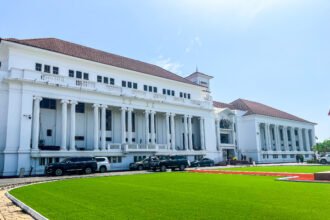
Supreme Court · Civil Appeal No: J4/51/2019 · 4 Nov 2020 · Ghana
Introduction:
This case relates to the making of Wills. It highlights the testamentary freedom of testators under our existing legal framework while bemoaning the entitlement mentality of many children when it comes to inheritances.
Facts:
Mr. Senti Michael (Plaintiff), the eldest son of the deceased Thomas Asante Senti (also known as Nana Senti), contested the validity of his father’s will after its reading and probate at the High Court in Sunyani. The Respondent claimed the will was not truly the act and deed of his father, citing the lack of clarity in property descriptions and alleging that the testator was severely ill, bedridden, and incapable of executing a will at the material time.
He further argued that the will was procured by fraud, especially pointing fingers at one Angelina Bommo Senti, a daughter of the testator, for exerting undue influence. The trial court and the Court of Appeal both ruled in favor of the Plaintiff and declared the will invalid, prompting an appeal to the Supreme Court by the named executors.
Holding:
The Supreme Court overturned the lower courts’ decisions, holding that:
- Allegations of both undue influence and forgery could not co-exist logically – either the testator executed the will under pressure, or he did not sign it at all.
- The execution of the will was duly proven by disinterested witnesses, including the attesting witnesses and the solicitor who drafted the will.
- The presumption of due execution, once established, was not effectively rebutted by the respondent’s suspicions and speculative evidence.
Implications of the Decision:
This judgment reaffirms the principle that testamentary freedom is protected unless compelling evidence suggests otherwise. The courts will presume the validity of a will that satisfies statutory formalities unless the challenger provides clear, credible, and consistent evidence. The decision is a caution against speculative challenges based on mere suspicion or emotion, particularly in family disputes over inheritance.
Significant Quote:
“It is usual for parents to totally disinherit a child above eighteen years in their Will. Other parents show their revulsion to children of bad character by donating a token sum to them for the purposes of purchasing Bibles to read and reform their lives. Such children, in the lifetime of their parents are believed to have acted contrary to the biblical advice in Exodus 20:12 to “ honour their father and mother, so that you may live long in the land the Lord your God is giving you.” In the recent decision of this court in Thomas Tata Atanley Kofigah v Kofigah Francis Atanley (supra), we decried the frequent challenge mounted by children against Wills made by their parents and the expectations among such children to have a divine right to be left an inheritance. We did so because we observed that one of our roles as a policy court is to identify some of the ills in our society and offer solutions towards curbing them.”
“As we decried in the Atanley’s case, such children also erroneously, hold the view that the ability to make it in life and acquire earthly possessions is the preserve of parents whose acquisitions must be fought over and each child begotten given an equal share.The world has reached a stage where it must be hammered home that the education imparted into the lives of children by their parents should be sufficient to equip and propel them to conquer the world and turn their homes, communities, countries and the world at large into successful places. It is expected that such children would dream, be innovative and improve upon what their parents acquired in their lifetime. The possessions, then left for them in the Wills of their parents should be an exception rather than the norm, a bonus rather than gold mines to fight for and live on.”
– Amegatcher, JSC
Commentary/Insight:
This significant quote from Amegatcher JSC draws attention to a prevalent issue observed by the Court: the frequent challenges to Wills initiated by children. These challenges often arise when children are disinherited or receive less than they expected, leading to a belief that they have a right or “divine entitlement” to their parents’ estate. However, the case and the cited quote emphasize that the law grants the testator considerable freedom to dispose of their property, even in a manner that may seem “capricious and improvident.











